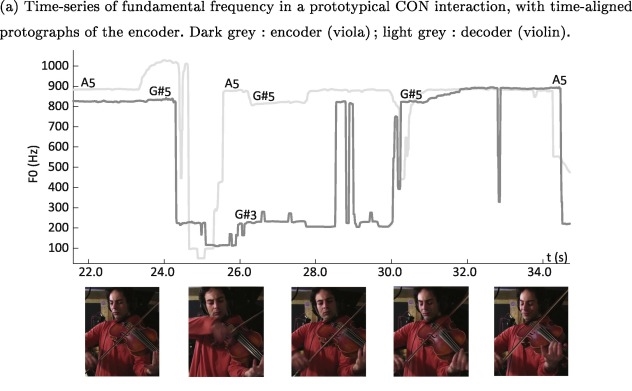A recently emerging view in music cognition holds that music is not only social and participatory in its production, but also in its perception, i.e. that music is in fact perceived as the sonic trace of social relations between a group of real or virtual agents. To investigate whether it is at all the case, we asked a group of free collective improvisers from Conservatoire Supérieur National de Musique et de Danse de Paris (CNSMDP) to try to communicate a series of social attitudes (being dominant, arrogant, disdainful, conciliatory or caring) to one another, using only their musical interaction. Both musicians and non-musicians were able to recognize these attitudes from the recorded music.
The study, a collaboration between Clément Canonne and JJ Aucouturier, was published today in Cognition. The corpus of 100 improvised duets used in the study is also available online: http://cream.ircam.fr/?p=575
